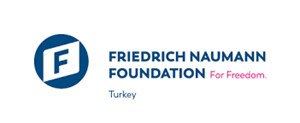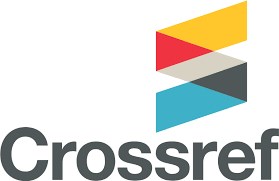Articles should be original and in English, between 2000–3500 words and should include a 100-120 word abstract as well as the full title and affiliation of the author. Abstracts should provide a summary of the main points of the article – its subject matter and contributions to the discussion of that subject, engage readers’ attention, and lead them to click to read the full article.
Please check with the editor if you wish to extend beyond the suggested length or would like to submit a shorter contribution. All notes should appear as footnotes and provide full citations. References should include the full name of the author, title of the work and publication date.
Papers must be in English – we strongly recommend non-native speakers get their articles edited by a native English speaker before submitting to TPQ – this will increase the likelihood of publication in TPQ.
In an effort to promote diversity and give voice to a wide range of contributors, repeat authors can contribute only after two full years (8 issues) have passed since the last time they contributed.
STYLE
Authors are responsible for ensuring that their manuscripts conform to the journal style.
Please limit repetition in the article. Please do not repeat the points in the article again in a conclusion section. We prefer academically sound articles however not academic style writing. Lively policy oriented language and style are favored.
FORMAT
1st page: Should include:
- The article’s title: should be in Times New Roman 20; capital letters, bold and centered. The length of the title should not exceed 60 characters (including spaces). However if a longer title is preferred, a shortened version should be supplied for the cover as well.
- The abstract: should be in Times New Roman 12; italic and justified
- The author’s name: should be in Times New Roman 18; bold and centered; the author’s identity should be explained in a footnote on the same page, which will be highlighted with the symbol “*”, not with numbers as the other footnotes; this footnote should be max 3 lines long, and preferably should describe the author’s current title. Do NOT indicate anything else but the author’s name and surname (no “Dr.”, “Prof.” before the name)
Example: John Smith* [then below the footnote *]
The distance (number of empty lines) between the title and the abstract and between the abstract and the author’s name is the same, also depending on the length of the title and of the abstract.
Headings: Should be in bold, italics, upper and lower case. Sub-headings should be in italics [not in bold], upper and lower case.
Please do not start your article with a subheading such as Introduction.
Margins and paragraphs: top and bottom→ 2cm, left margin→ 3cm, right margin→1,5cm; single spacing between the lines; the paper should be in Times New Roman 12, justified; leave an empty line between 2 paragraphs, 1 empty line between 1 sub-parts of the article; use a single space after full stops, not double space.
Spelling: American spelling and punctuation should be used throughout.
Numbers: Numbers from one to ten should be spelled out; other numbers should be given as numerals. Dates should be in the form 18 April 2004; 1994–98; the 1990s. Use “percent” rather than %. However in footnotes and tables all numbers should be given as numerals and % should be used.
Figures and Tables: All diagrams, charts and graphs should be referred to as figures and consecutively numbered. Tables should be kept to a minimum and contain only essential data. Color-based charts cannot be included as the pages are black-and-white. All Figures should be sent as separate documents in .tif or .jpeg format (photoshop program). Please note where in the text each figure should be inserted as:
[figure 1 about here].
Lists: use bullet points (not scores)
Foreign words: put them in italic; for foreign language titles in the text or in the footnotes follow the rules in the FOOTNOTES section of this sheet.
Please do not italicize the following words since they are widely considered standard English: status quo, coup, naïve, vis-à-vis,
Political Leaders and figures: Please provide the figure/political leader’s full name and position for the first reference in the piece. You can then proceed to refer to him/her by their last name.
Hyphenation: use sparingly (peacekeeping, ceasefire).
When independent clauses are used, hyphens should be attached to the clause as displayed in the following example:
Obama – who has been elected to office last year – has been very successful so far
When accessory sentences are added, or the added section is dependent on the main sentence, hyphens should separate the sentence from the clause in the following fashion:
Russia represents a challenge for the EU – namely in terms of security.
Acronyms (caps) in text: Spell out in full the first time any acronym is used and state the acronym in parenthesis. Use “the” in front of political party acronyms, such as “the AKP.”
Full points: UK, USSR, UN, EU, US, but ed., eds., Ltd., Co., Vol., No., Mr., Dr.
US states: use postal abbreviation system: MA, CT, CA, Washington DC (no full points), rather than Mass., Conn. etc.
Numerals: one to nine to be spelled out; 10, 11 and above in figures. (Note: When inserting financial figures above hundred thousands; use “2 million dollars”, however according to sense use “a 2 million dollar project”). Also 20th century. And when starting the sentence with a number in a numbered list, spell out the number, such as:
- Fifty percent of people say…
- Three decades ago…
Percentages should be written as “percent” in the text, and as % in footnotes and in tables.
Dates: 18 April 1976, not April 18, 1976. Use this system in references as well. Use 19th century. “in his forties,” the mid-1960s (Be sure to use 1930s, not ‘30s or 30’s or thirties). But for special dates, which are known and used in a special format, the format can change, such as “September 11”.
Shortening of years: always shorten to two digits: 1974–75 (not 1974–5) or 1974/75 (according to sense) – except 1907–8.
Months: do not abbreviate months.
Fractions (two-thirds and so on) should be hyphenated.
(&) Ampersand should not be used instead of and (for example, between authors’ names) except in the names of specific firms (especially in references to publishers, for example, Routledge & Kegan Paul).
Spelling: make consistent throughout. American spellings to be used. -ize ending: organize, politicize; favor, labor; -ization, not -isation.
Capital letters: minimal use of capitals for titles and unique institutions, government, state; but the West, Western thought; for geographical areas Western Europe, the North; the Left but left-wing politics.
Grammar points:
- Emigrate/Immigrate: Emigrate = to leave one’s country to live in another. Immigrate = to come into another country to live permanently. The choice between the two depends on the sentence’s nuance. See the below sentence:
- “Similarly, the renowned Islamist author Mehmet Akif Ersoy, who lived in the final decades of the Ottoman Empire, declined to live under the Republic, preferring to emigrate to Egypt."
- The emphasis in the sentence is leaving his country where he didn’t want to be, more than the choice to go to Egypt.
Quotes: Double quotation marks in text; single within double
Example: As Obama says: “Roosevelt used to say ‘one man one word.’”
Square brackets should be used for any matter inserted in quotations.
Quoted matter of 60 words and more should be indented, without using quotation marks.
In general, TPQ always uses rounded off quotation marks or apostrophes (‘’, “”), not straight ones, and always double quotation marks (“euroskepticism” and NOT ‘euroskepticism’).
For periods, commas etc. after a quote write the period, comma etc. within the quotation marks:
Obama says: “Turkey follows a dangerous policy.” and “Turkey follows a dangerous policy,” says Obama.
However if quotes are used to signify a certain expression, periods, commas etc. should be written outside the quotation marks:
Obama talks about the “right path”, a term that he uses quite often in his speeches.
For book or film titles, newspaper/magazine names as well as TV shows, the title should not be put in quotations but instead written in italic: The book A Peace to End all Peace is an excellent work.
If the quotation is very long (one page more or less) put it indented and cancel the quotation marks.
FOOTNOTES
We do not include References or End Notes sections.
Footnotes should be numbered consecutively throughout the article, using a raised numeral in the text, to correspond to a list of notes placed at the bottom of the page.
Use Times New Roman 10.
The only footnote which doesn’t have a number is in the first page, is indicated by a * and refers to the author.
A full stop is needed at the end of a footnote, but NOT in the footnotes ending with a link of a website.
Foreign titles in the footnotes should be either:
- put in their English version (if existing)
- translated (if we know the original language)
- asked to the author (if neither of the options above is feasible).
In either case the translation should be put in square brackets right after the original title.
Page numbering in references: contract as far as possible: pp. 22–3, 256–7, 256–84, 207–8. But be careful: use pp. 10–11, 16–17 and 210–11.
Books:
- John Smith, The Book Title (New York: New York Publishing Co, 2003), p. 100.
- John Smith (ed.), The Book Title (New York: New York Publishing Co, 2003), p. 100.
- John Smith and Mary Jones (eds.), The Book Title (New York: New York Publishing Co, 2003), p. 100.
Subsequent references should appear as: Smith (1999), p. 100.
Articles in a review or journal: note the sequence of volume, number, date of publication and page reference.
John Smith, “Article Title,” Journal Name, Vol.#, No.# (Month Year), p.#.
Subsequent references should appear as: Smith (Year), p. #. If the article has more than three authors, use “Smith et al.”
John Smith, “Article Title,” in Mary Jones (ed.), Book Title (New York: New York Publishing Co, 2003), p. 100.
Websites: John Smith, “Article Title,” Name of the Website, Date (if available), www.sitename.com
Remember to check the correct working of the link!
Speeches: Samuel Huntington, “Culture, Power, and War: What Roles for Turkey in the New Global Politics,” speech given on 24 May 2005, Istanbul.
Newspapers: “Loğoğlu calls for Iran-US talks,” Turkish Daily News, 21 December 2005.
If the note is referring to an unpublished work, conversation, and/or conference, provide (if available) information regarding the full name, session number and included parties.

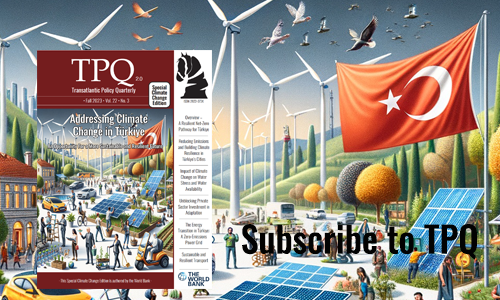




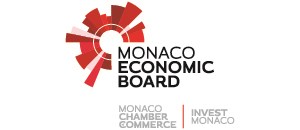

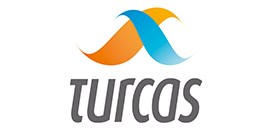


 The complex global challenges of our time increasingly intersect across domains once considered separate. Public health crises expose weaknesses in governance; security threats now emerge from both state and non-state actors; human rights are under strain in conflict zones and authoritarian settings; and migration continues to test national capacities and collective values. This special issue...
The complex global challenges of our time increasingly intersect across domains once considered separate. Public health crises expose weaknesses in governance; security threats now emerge from both state and non-state actors; human rights are under strain in conflict zones and authoritarian settings; and migration continues to test national capacities and collective values. This special issue...









